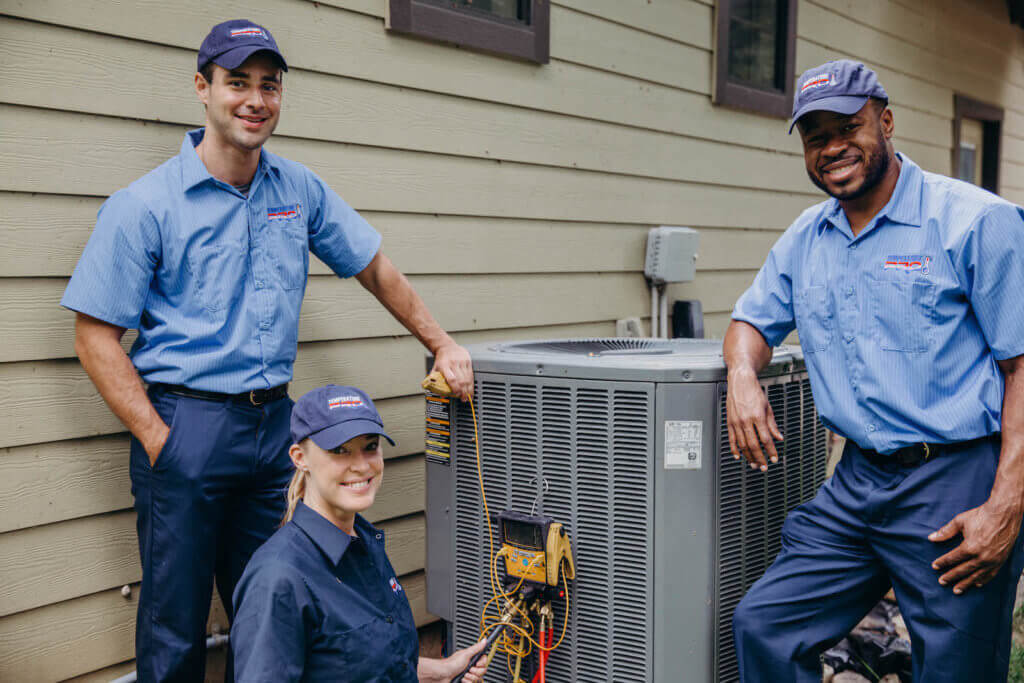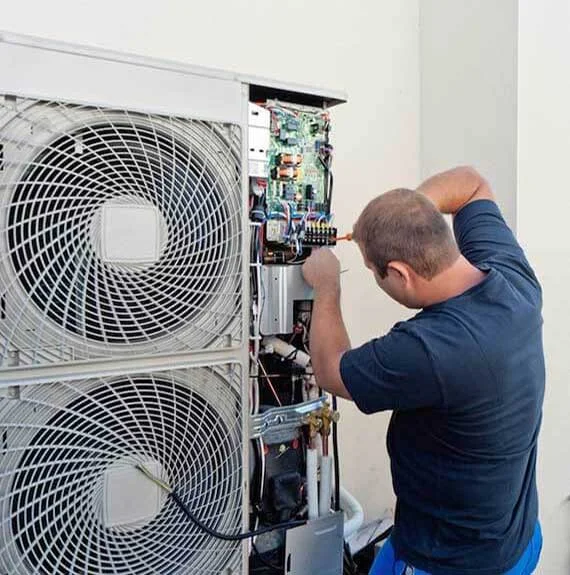Air Conditioning Repair Euless TX unit for your space is crucial to ensure efficient cooling, comfort, and energy savings.

An undersized unit will struggle to cool your space, leading to higher energy consumption and wear. Conversely, an oversized unit will cycle on and off frequently, causing humidity issues and increased wear. Here’s a comprehensive guide to help you properly size an AC unit for your space.
1. Understanding Cooling Capacity: BTUs
The cooling capacity of an AC unit is measured in British Thermal Units (BTUs) per hour. BTUs indicate the amount of heat the unit can remove from the air in one hour. The higher the BTU rating, the greater the cooling capacity. To determine the appropriate BTU rating for your space, consider the following factors:
- Room Size
- Insulation Quality
- Sun Exposure
- Ceiling Height
- Occupancy
- Appliances and Electronics
2. Calculating the Room Size
The first step in sizing your AC unit is to calculate the square footage of the space to be cooled.
- Measure the Room: Measure the length and width of the room in feet.
- Calculate the Area: Multiply the length by the width to get the square footage.
For example: Length=20 feet, Width=15 feetLength=20 feet, Width=15 feet Square Footage=20×15=300 square feetSquare Footage=20×15=300 square feet
3. Basic BTU Sizing Chart
Here is a basic BTU sizing chart to help you estimate the required capacity:
- 100 to 150 sq. ft. = 5,000 BTUs
- 150 to 250 sq. ft. = 6,000 BTUs
- 250 to 300 sq. ft. = 7,000 BTUs
- 300 to 350 sq. ft. = 8,000 BTUs
- 350 to 400 sq. ft. = 9,000 BTUs
- 400 to 450 sq. ft. = 10,000 BTUs
- 450 to 550 sq. ft. = 12,000 BTUs
- 550 to 700 sq. ft. = 14,000 BTUs
- 700 to 1,000 sq. ft. = 18,000 BTUs
- 1,000 to 1,200 sq. ft. = 21,000 BTUs
- 1,200 to 1,400 sq. ft. = 23,000 BTUs
- 1,400 to 1,500 sq. ft. = 24,000 BTUs
- 1,500 to 2,000 sq. ft. = 30,000 BTUs
- 2,000 to 2,500 sq. ft. = 34,000 BTUs
4. Adjustments Based on Room Characteristics
While the basic sizing chart provides a good starting point, you need to adjust the BTU capacity based on specific characteristics of your room:
Insulation Quality
- Well-Insulated: If your space is well-insulated, you can use the standard BTU estimate.
- Poorly Insulated: Increase the BTU capacity by 10-20% if the space has poor insulation.
Sun Exposure
- High Sun Exposure: Increase the BTU capacity by 10-20% for rooms with large windows or direct sunlight for most of the day.
- Low Sun Exposure: Decrease the BTU capacity by 10% for rooms with little to no sunlight.
Ceiling Height
- Standard Ceiling (8 feet): Use the standard BTU estimate.
- High Ceilings (over 8 feet): Increase the BTU capacity by 10-20% to account for the additional volume.
Occupancy
- Additional People: Add 600 BTUs for each additional person regularly occupying the room beyond the first two people.
Appliances and Electronics
- Heat-Generating Appliances: Add 4,000 BTUs if the room contains heat-generating appliances like ovens, stoves, or numerous electronics.
5. Multiple Rooms and Open Spaces
If you are cooling multiple rooms or an open-concept space, consider the following:
- Single AC Unit: For open spaces, calculate the total square footage and apply the adjustments for insulation, sun exposure, etc.
- Multiple Units: For separate rooms, calculate the BTU requirements for each room individually and consider using multiple smaller units instead of one large unit.
6. Professional HVAC Load Calculation
While the above steps provide a good estimate, a professional HVAC load calculation, known as Manual J, is the most accurate method. This calculation takes into account:
- Detailed room measurements
- Orientation and shading
- Insulation levels
- Window types and sizes
- Air infiltration rates
- Internal heat gains
An HVAC professional can perform this calculation to determine the exact cooling capacity needed for your space.
7. Efficiency and SEER Ratings
When selecting an AC unit, consider its Seasonal Energy Efficiency Ratio (SEER). Higher SEER ratings indicate more efficient units, which can lead to lower energy bills. Look for units with a SEER rating of 14 or higher for optimal efficiency.
8. Example Calculation
Let’s go through an example to demonstrate how to size an AC unit for a specific space.
Room Details:
- Length: 20 feet
- Width: 15 feet
- Ceiling Height: 10 feet
- Insulation: Average
- Sun Exposure: High
- Occupants: 4 people
- Appliances: None
Step-by-Step Calculation:
- Calculate Square Footage: 20×15=300 square feet20×15=300 square feet
- Base BTU Requirement: 300 sq. ft.≈8,000 BTUs300 sq. ft.≈8,000 BTUs
- Adjust for Sun Exposure: 8,000 BTUs×1.20=9,600 BTUs8,000 BTUs×1.20=9,600 BTUs
- Adjust for Occupancy: 9,600 BTUs+(2×600 BTUs)=10,800 BTUs9,600 BTUs+(2×600 BTUs)=10,800 BTUs
- Adjust for Ceiling Height: 10,800 BTUs×1.10=11,880 BTUs10,800 BTUs×1.10=11,880 BTUs
- Final BTU Requirement: Given these adjustments, a unit with a cooling capacity of approximately 12,000 BTUs would be suitable for this room.
Conclusion
Properly sizing an air conditioning unit involves understanding the cooling capacity needed based on your room’s square footage and adjusting for factors like insulation, sun exposure, ceiling height, occupancy, and appliances. While the basic calculations provide a good estimate, consulting an HVAC professional for a detailed load calculation can ensure the most accurate sizing. An appropriately sized AC unit will enhance comfort, improve energy efficiency, and prolong the unit’s lifespan.
Veteran’s AC & Heating
615 N Main St #155, Euless, TX 76039, United States
1-817-858-9301



